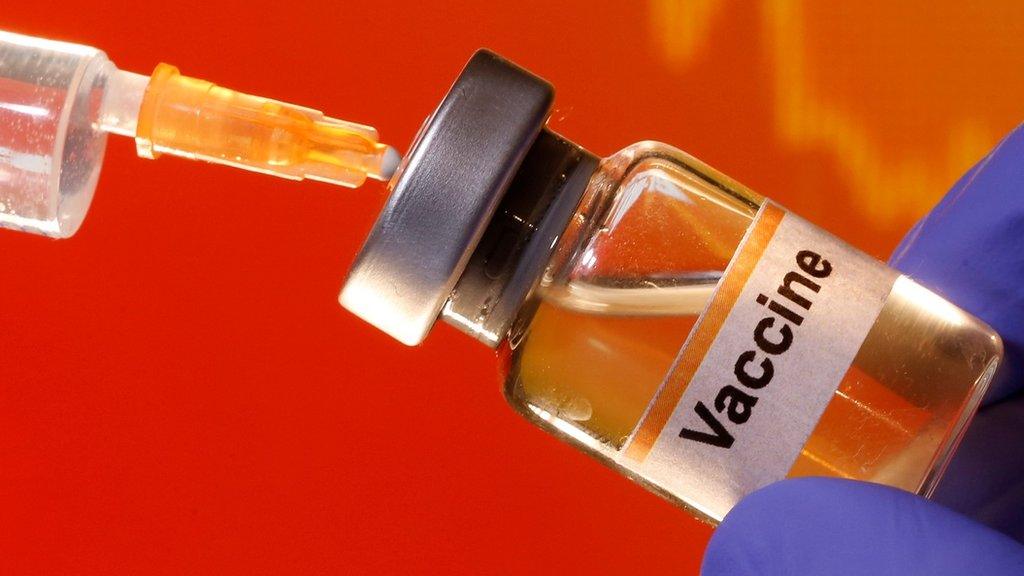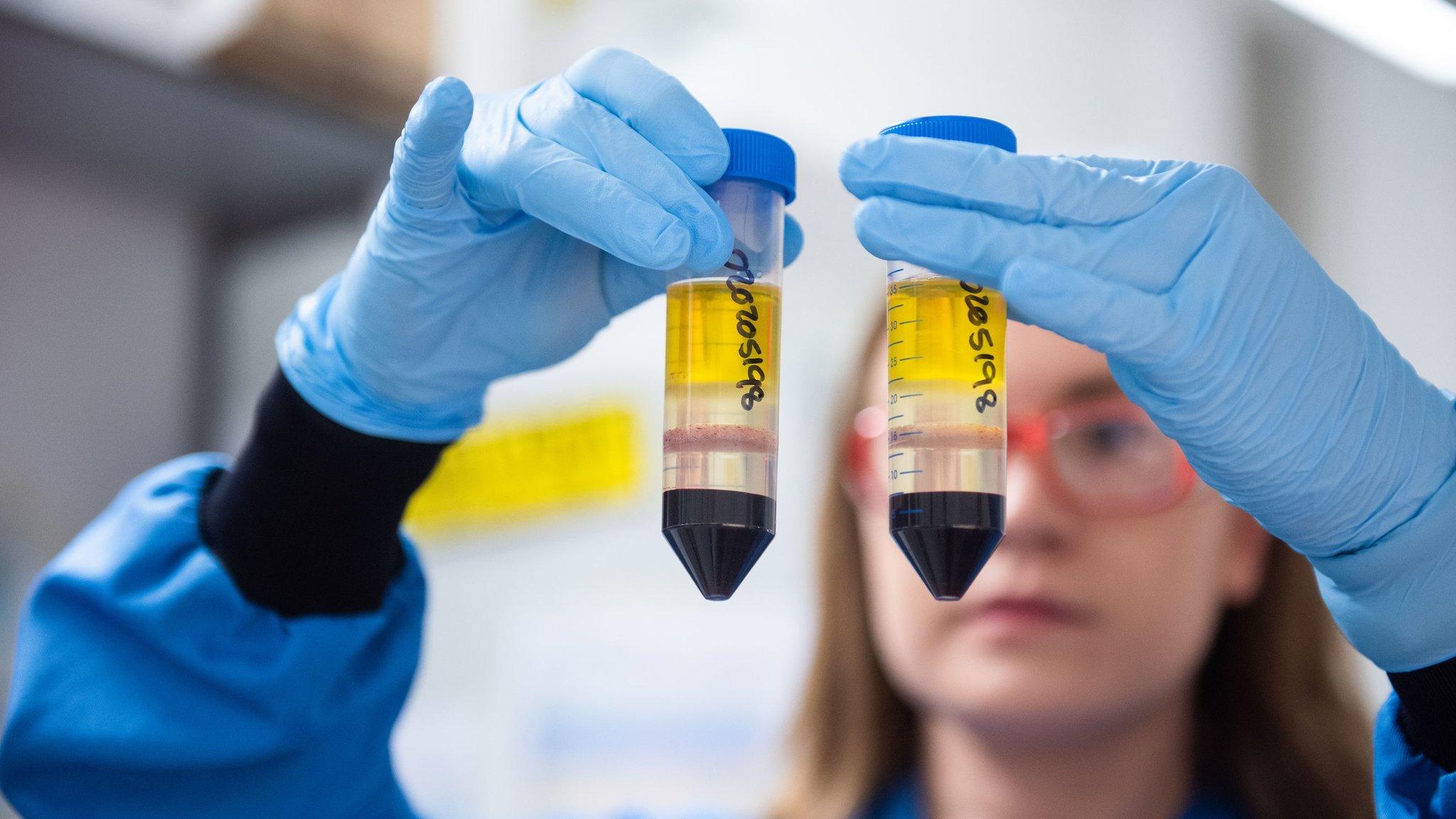Covid vaccine approved for use as early as next week
- Published
- comments

The UK has become the first country in the world to approve one of the new coronavirus vaccines for widespread use.
The vaccine has been made by Pfizer and their partner - BioNtech, they are companies in the US that create medicines.
The British regulators, the MHRA, who are the people in charge of approving medicines in the UK, say it is safe to give to people.
The vaccine offers up to 95% protection against Covid-19.
Vaccines: What are they and how can they help fight Covid-19?
What has Boris Johnson said?

In a statement the prime minister thanked all those who have taken part in trials, along with the scientists who made the breakthroughs.
He said we are "no longer resting on the mere hope that we can return to normal next year but the sure and certain knowledge" we will.
But Mr Johnson it will be "some months before all the most vulnerable are protected" and we must not get "carried away with over-optimism".
How quickly will people get vaccinations?
Immunisations could start within days for people in high priority groups, like NHS workers and older people in care homes.
Immunisations, or vaccination, means putting a special type of substance (a vaccine) into your body so that your body can learn how to fight an infection.
It's not enough to give you the disease, but it helps the body to recognise the virus and fight it in the future.
There are no plans to give the injection to children at the moment.
The UK has already ordered 40 million doses - enough to vaccinate 20 million people, as each person needs two doses.
Although vaccination can start, people still need to remain alert and follow coronavirus rules to stop the spread, say experts.
That means sticking with the social distancing and face masks, and testing people who may have the virus and asking them to isolate if they have it.
Who will get it and when?

Experts have drawn up a priority list, targeting people at highest risk of becoming seriously ill if they got Covid-19.
Top are care home residents and staff, followed by people aged over 80 and other health and social care workers.
They will receive the first stocks of the vaccine - some before Christmas.
Next will be people over 50, as well as younger people with pre-existing health conditions, as more stocks become available in 2021.
It is given as two injections, 21 days apart, with the second dose being a booster.
What about other Covid-19 vaccines?
How do you make a vaccine for coronavirus?
There are some other promising vaccines that could also be approved soon.
One from Moderna uses the same approach as the Pfizer vaccine and offers similar protection. The UK has pre-ordered 7m doses that could be ready by the spring.
The UK has also ordered 100m doses of a different type of Covid-19 vaccine from Oxford University and AstraZeneca.
Prime Minister Boris Johnson has described the coronavirus vaccine from the University of Oxford as "incredibly exciting".
- Published19 November 2020

- Published23 November 2020

- Published24 November 2020

